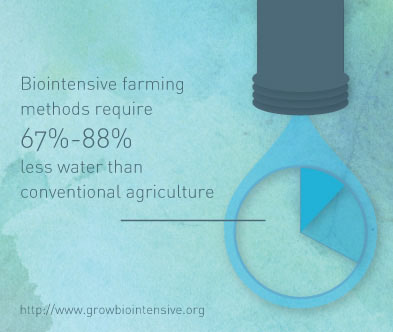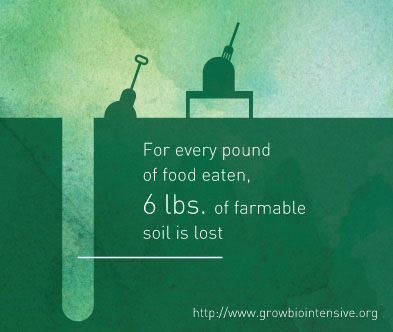Nestled in the redwoods of northern California’s Mendocino county is the small town of Willits. This community is the home of the farming pioneers Ecology Action, and the home of their Grow Biointensive mini-farm.
Founded in 1971, Ecology Action was first headquartered in Palo Alto, CA. The project’s original aim was and still is to “teach regular classes, collect data, make land available for gardening and publish information” on the techniques of Biointensive agriculture. The work grew from a collective concern about worldwide starvation and malnutrition as a result of overpopulation.
At the foundation of the Grow Biointensive method are the scientific principles which underlie ancient traditional farming methods such as:
- Double-Dug, Raised Beds
- Composting
- Intensive Planting
- Companion Planting
- Carbon Farming
- Calorie Farming
- The Use of Open-Pollinated Seeds
- A Whole-System Farming Method (www.growbiointensive.org)
 The methods aim to minimize water inputs (done properly this method requires 67-88% less water than conventional agriculture) and produce more food on less land by increasing the soil health and producing food without the use of petroleum or natural gas products.
The methods aim to minimize water inputs (done properly this method requires 67-88% less water than conventional agriculture) and produce more food on less land by increasing the soil health and producing food without the use of petroleum or natural gas products.
According to Ecology Action, “There may be as little as 40 years of farmable soil remaining globally. For every pound of food eaten, 6 to 24 pounds of soil are lost due to water and wind erosion, as the result of agricultural practices.” This means that soil health should be a top priority for anyone passionate about food security for the future.
 The group now holds workshops at the farm in Willits and at other locations around the country teaching others how to grow more food with less space, save water and replenish soil during the process.
The group now holds workshops at the farm in Willits and at other locations around the country teaching others how to grow more food with less space, save water and replenish soil during the process.
